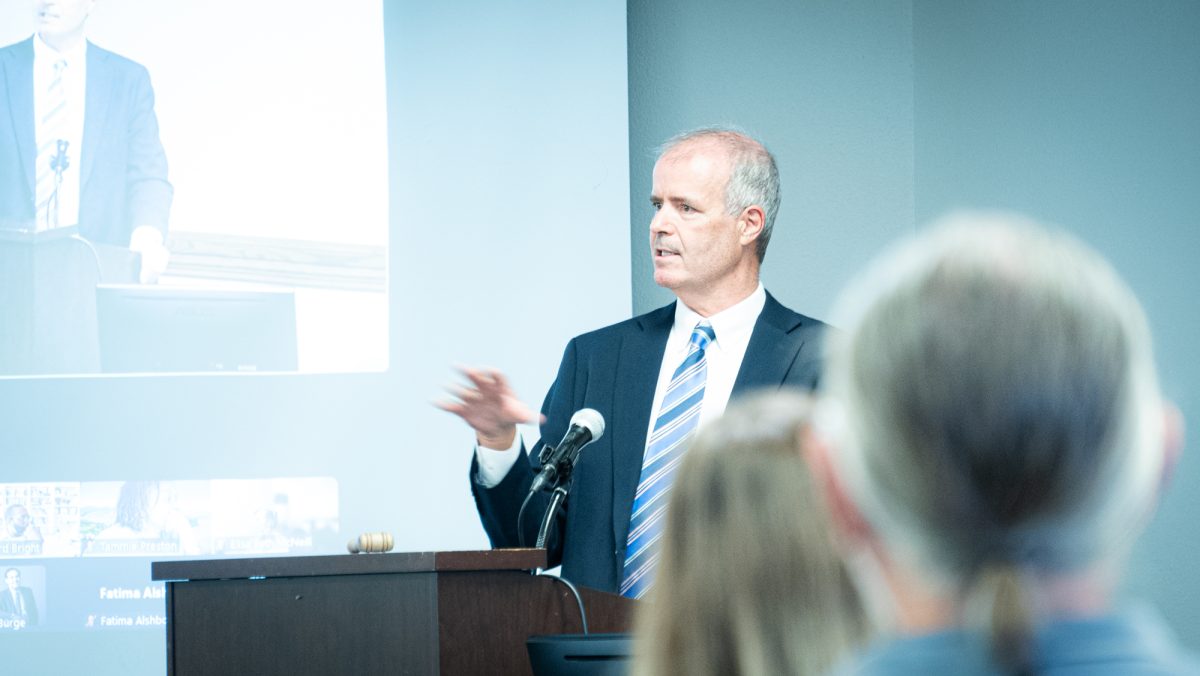“No taxation without representation.” This protest by a small group of British colonials eventually evolved into a form of government by the people, for the people but not quite of the people. The key principle of a representative democracy is accountability of the government to its constituents. A small group is elected to make and enforce policies that will best serve the people of the nation. The moment the government strays from this path, the electorate can remove its members in favor of a new group. The notion of accountability has stood the test of time in the United States, proving its necessity in all aspects of government, and has been applied to many other institutions requiring representative governance.
One institution is the university. Like the U.S. government, universities have a president who is considered the primary public figure. Unfortunately, the laws of Texas and System rules, which have established the President of Texas A&M, have failed to include the key principle of representative democracy: accountability. The A&M president is not truly accountable to those he serves, the students and faculty members. Instead, he answers only to the Board of Regents, a small group also lacking accountability to those who actually matter. From this system, democracy has been defeated by an aristocracy with little understanding of what is most important to the people. A change is needed to allow the students more say in how their school is run.
Before continuing, it should be made clear that this is by no means a personal attack on University President Robert M. Gates, or his particular policy objectives, although some policies may be used as examples.. All due respect shall be granted to Dr. Gates, and at no time shall an implied reference of negativity be made toward him. The purpose is to attack the inadequacies of a system which predates Gates’s appointment.
The underlying issue of the current system is the students’ role in choosing the president. Until this problem is fixed, nothing else matters. Currently, students do have a vote on who should be chosen; however, this vote is more like a party primary to choose a final candidate. A list of finalists chosen by many campus constituencies, including students, is sent to the Board of Regents. The board actually makes the final selection. It alone has the final say in who is appointed. The board does not have the right to retain this power. It is the students who have the largest interest in the administration of this school. Clearly, students have a much better understanding of their best interests, and hence who will best serve those interests. Why then, do nine votes outweigh 45,000?
Next in line is students’ power to remove a president who does not serve them correctly. As of now, no such power exists. Once again, the Board of Regents retains the sole power to remove the president. Furthermore, he serves at the pleasure of the board. In other words, there are no term limits. Theoretically, the president can serve from appointment to death. Some long-term goals take years to achieve. Such goals are intended to serve not just the current, but future generations as well. Although this ensures certain objectives will be completed without interruption, the idea of no term limits fails to recognize that values change as new generations emerge. Diversity may still be an important issue in 20 years, making Vision 2020 a necessary goal today. However, diversity of race may be completely irrelevant in five years, whatever the reason. Furthermore, many students at A&M feel there are other issues of far greater importance being ignored. Yet, so long as the Board of Regents approves of Vision 2020, students have little power to stop it. This is simply one example of an issue that a significant portion of the student body opposes for various reasons, but still has little say in whether it passes.
The president of the University should be held accountable to the students, not the Board of Regents. The means by which to achieve this goal are quite simple. First, students should have the power to select the president by voting. Secondly, the president should have to run for reelection after a fixed number of years, much like the president of the United States, although a limit on the number of terms is not completely necessary. These aspects of voting and removing coincide. To ensure more accountability, both powers must be granted to the students.
The people most directly affected by an issue are typically the most active in supporting or opposing the issue. Students tend to fit this description quite well when regarding how their school will educate them. Therefore, students should be afforded the same power in their education as they are given in life, the power to control their government.
Limiting leaders
November 17, 2004

0
Donate to The Battalion
Your donation will support the student journalists of Texas A&M University - College Station. Your contribution will allow us to purchase equipment and cover our annual website hosting costs.








